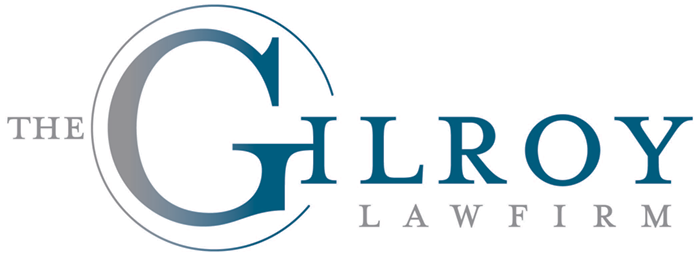More On Estate Plans
- ESTATE TAX: Washington State has Estate Tax on any assets over $2,193,000.00. (Federal Estate Tax limit is much higher, i.e. $11,900,000.00. If an Owner has an estate over the state estate tax exclusion, then the Owner’s estate has to pay estate tax, which amount depends on the value of the estate. Washington Estate, Taxes are on a sliding scale from 10% on the 1st $1,000,000.00 over the exclusion ($100,000.00) to 20% on estate values in excess of $9,000,000.00. EXAMPLE: If the estate is worth $5,000,000.00, the exclusion of $2,193,000.00 leaves $2,807,000.00 for taxing. The 1st $1,000,000.00 is taxed $100,000.00 as mentioned above. The next million is taxed at 14% ($140,000.00). The next level of tax is 15% for the remaining amount of $807,000.00 ($121,050.00). That is a total Estate Tax of $361,050.00.
AND add costs for an accountant to prepare the Washington Estate Tax Return: Last quote $7500-12,000.00.
A NOTE ABOUT PORTABILITY
Washington Estate Tax Exclusion of $2,193,000.00 is enjoyed by each individual. Married individuals are treated no differently – unless when one spouse dies, the surviving spouse has the option of sheltering the deceased spouse’s unused Estate Tax Exclusion. This option takes planning, however. The shelter or “portability substitute” of the Washington Estate Tax Exclusion is not automatic. Holding onto the deceased’s exclusion also requires the filing of an Estate Tax Return, which requires an expensive CPA or accountant fee. So, plan first to be sure that sheltering the unused Estate Tax Exclusion is truly needed or desired.
There are many options to avoid Estate Tax other than relying upon the Estate Tax Exclusion. Seek legal counsel for additional tips and guidelines.
CONTACT THE GILROY LAW FIRM FOR AN ESTATE PLANNING MEETING
2nd Note: FEDERAL ESTATE TAX: Unlike Washington Estate Tax, a surviving spouse may adopt or “port” the unused portion of the deceased spouse’s Federal Estate Tax Exclusion. This use of the decedent’s unused exclusion is called “portability.” If and when the surviving spouse elects “portability” of the deceased spouse’s unused tax exclusion, the surviving spouse will be required to file a Federal Estate Tax Forms. A CPA’s advice is advised. If needed, portability is worth the effort. Otherwise, Federal Estate Tax gets as high as 40% on values beyond the exclusion amount.
B. INCOME TAX: After the Tax Cut and Jobs Act of 2017, the emphasis of estate planning for the general population with estates under $2,000,000.00 shifted. The concern was no longer about avoiding Estate Tax (state and federal). It was about avoiding income tax for the beneficiaries of the bequeathed assets that would be ultimately sold.
The good news is that Washington State does not yet have an income tax. That means that wages, social security payments, retirement funds are not taxed by the state of Washington. Nonetheless, the Federal Government taxes all income, i.e. ordinary income and capital gains income. This is where the term “Basis” becomes important. “Basis” is the amount of investment one has in an assets.
If the bequeathed asset has a value (at death) of, say, $1,000,000.00, but the Owner’s “basis” (think investment) in that asset (at death) was only $200,000.00, then using the owner’s basis of $200,000.00, the beneficiary would have a hefty “capital gain” of the $800,000.00 on the sale of the asset. That capital gain is taxed either as a short-term capital gain (holding less than 1 year) as ordinary income. Or that capital gain will be taxed as a long-term capital gain (holding more than 1 year) at either 15% for gains over $39,000.00 (approx.) and 20% for gains over $435,000.00 (approx.). Note: there is 0% capital gains tax on gains if the owner’s income is under $39,000.00 (approx.); however, ordinary income tax rates of either 10%-12% would apply. So, with $800,000.00 capital gain – hopefully long-term – the capital gain tax is upwards of $110,000.00.
But, with a good estate plan, the beneficiary would not have to sacrifice the $110,000.00 of the asset to taxes. One way is to ensure that the asset has a “stepped up basis”, i.e. the market value of the asset on the date of the decedent’s death. If so, that will eliminate much of the income tax if the beneficiary sells the asset shortly thereafter. (Read more about “stepped up basis”, below.)
NOTE about RETIRMENT FUNDS: When an IRA or Retirement Annuity is bequeathed, it is an income tax event because those monies were never taxed prior to being invested (unless it is a Roth IRA). Income tax can be further deferred or avoided outright if planned well. One method for avoidance is by gifting those IRA/Retirement monies to charity. Properly designated charities do not pay income tax – even to the federal government.
